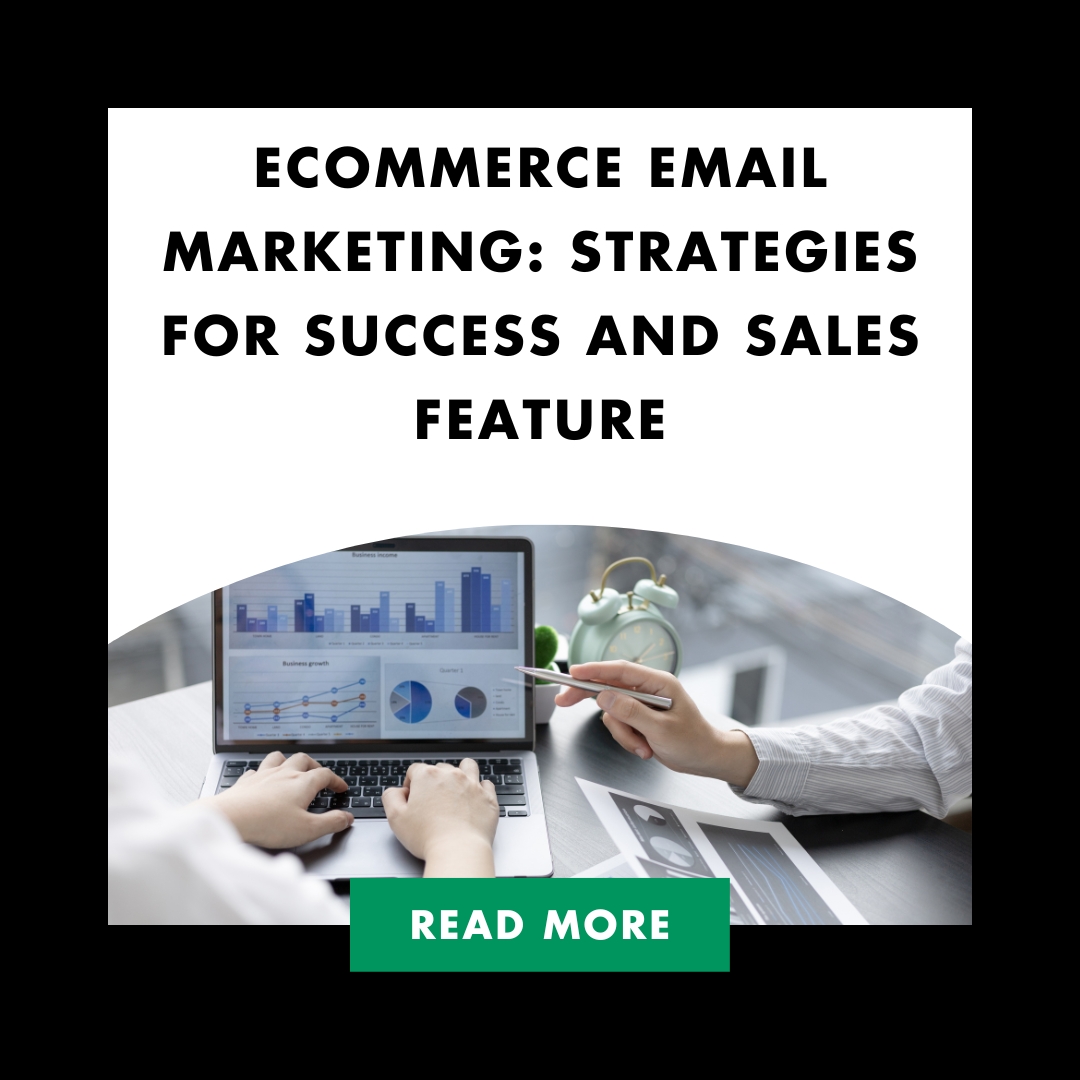Exploring the Top Benefits of Ecommerce SEO for Businesses
Comprehending the profits of eCommerce SEO is critical for enduring prosperity in the digital realm as an online business proprietor. With search engines continuously evolving their algorithms, staying ahead of the curve and optimizing your online store can lead to significant advantages over competitors.
In this comprehensive blog post, we will explore various aspects of ecommerce search engine optimization that contribute to increased visibility and revenue generation. We’ll discuss how focusing on organic rankings and brand visibility through keyword research and on-page optimization can improve your site’s positioning in search engine results pages (SERPs).
Furthermore, you’ll learn about increasing website traffic without relying solely on paid advertising by employing off-page optimization strategies. We will also delve into improving user experience and site navigation through structural optimizations, mobile responsiveness enhancements, as well as targeting long-tail phrases for higher return on investment (ROI) opportunities.
Last but not least, discover how driving lower-cost top-of-funnel traffic via SEO contributes to more cost-effective marketing campaigns while building authority and brand discoverability through valuable content creation and link-building efforts.
Table of Contents
Boosting Organic Rankings and Brand Visibility
Want to be seen by potential customers? Then you need ecommerce SEO. By optimizing your content with relevant keywords, you can boost your organic rankings and become more visible in search engine results pages (SERPs).
Utilizing Relevant Keywords to Improve SERP Positioning
To improve your website’s position on SERPs, you need to conduct thorough keyword research and identify the most relevant terms that your target audience is using. Incorporating pertinent keywords into your website’s content can not only assist search engines in comprehending the services or goods you offer, but also bolster the probability of captivating potential customers who are actively searching for what you have to provide.
Importance of On-Page Optimization for Better Visibility
On-page optimization is key to boosting organic rankings. It ensures that each page on your website is properly structured and optimized around targeted keywords. This includes elements such as title tags, meta descriptions, header tags (H1-H6), image alt text, and internal linking strategies. A well-optimized webpage provides clear signals to search engines about its relevance and value while simultaneously improving user experience through easy navigation and engaging content.
- Title Tags: Ensure that each page has a unique title tag containing primary keyword(s).
- Meta Descriptions: Create compelling meta descriptions that accurately describe the content of each page while incorporating target keywords.
- H1-H6 Header Tags: Add appropriate header tags throughout the content to break up large blocks of text into easily digestible sections.
- Image Alt Text: Add descriptive alt text to images that include relevant keywords, improving accessibility and SEO value.
- Internal Linking Strategies: Create a logical internal linking structure that helps users navigate your site while also distributing link equity across pages for better rankings.
Incorporating these on-page optimization techniques will not only improve your website’s organic search performance but also contribute towards building a strong online presence and brand visibility in the competitive ecommerce landscape. To make the most of your ecommerce SEO, it’s essential to take advantage of advanced strategies and tactics for improved organic search performance and increased brand visibility. So, what are you waiting for? Get optimizing.
Key Takeaway:
Ecommerce SEO is crucial for boosting organic rankings and brand visibility. By conducting thorough keyword research, optimizing on-page elements such as title tags, meta descriptions, header tags (H1-H6), image alt text, and internal linking strategies you can improve your website’s position on SERPs while also contributing towards building a strong online presence and brand visibility in the competitive ecommerce landscape.
Increasing Website Traffic through Ecommerce SEO
Effective ecommerce SEO strategies contribute significantly towards increasing website traffic by attracting high volumes of quality visitors without spending money on advertising. This increased traffic ultimately leads to higher sales and revenue generation.

Attracting High-Quality Traffic Without Paid Advertising
Ecommerce businesses can leverage the power of organic search results to drive targeted, high-quality traffic without relying on paid advertisements. By utilizing the right keywords and applying techniques for both on-page and off-page optimization, businesses can attain a higher ranking in SERPs, thus boosting their visibility to potential customers searching online.
- Keyword research: Identify the most relevant keywords that your target audience is using when searching for products or services similar to yours.
- Title tags & meta descriptions: Optimize these elements with targeted keywords to improve click-through rates from SERPs.
- User-focused content: Create engaging, informative, and original content that addresses users’ needs while incorporating strategically placed keywords throughout the text.
The Role of Off-Page Optimization in Driving Targeted Visitors
In addition to on-page optimizations, off-page factors also play a crucial role in driving targeted visitors towards your ecommerce site. Building a strong backlink profile is essential for boosting domain authority and improving organic rankings. Some effective techniques include:
- Gaining links from reputable websites within your industry through guest blogging or collaborative projects;
- Promoting shareable content across social media platforms;
- Maintaining an active presence on relevant online forums and communities, providing valuable insights and establishing your brand as a thought leader in the industry.
By focusing on both on-page and off-page optimization strategies, ecommerce businesses can significantly increase website traffic without relying solely on paid advertising. By utilizing both on-page and off-page optimization tactics, ecommerce businesses can create a powerful online presence that brings in more potential customers while also increasing sales and aiding long-term growth.
Key Takeaway:
Ecommerce SEO strategies can increase website traffic by attracting high-quality visitors without relying on paid advertising. By optimizing content with relevant keywords and implementing best practices for both on-page and off-page optimization, ecommerce businesses can rank higher in search engine results pages (SERPs) to drive targeted traffic towards their site. Building a strong backlink profile is also essential for boosting domain authority and improving organic rankings.
Targeting Long-Tail Phrases for Higher ROI
E-commerce SEO boosts ROI by targeting long-tail phrases that convert better than generic terms. Focusing on these specific keyword combos helps businesses reach niche audiences who are more likely to make purchases.
Identifying Profitable Long-Tail Keyword Opportunities
To find profitable long-tail keywords, e-commerce owners should conduct thorough keyword research. This process involves analyzing search volume, competition levels, and user intent behind each phrase. Tools like Google’s Keyword Planner or Ahrefs can help you find relevant long-tail keywords with low competition and high conversion potential.
- Analyze search volume: Look for keywords with consistent monthly searches but not too much competition.
- Assess competition levels: Choose phrases where your website has a better chance of ranking in the top results due to lower competitor presence.
- Determine user intent: Focus on keywords that indicate users are looking for information about products or services similar to what your business offers.
Benefits of Focusing on Niche Markets with Tailored Content
Focusing on niche markets through tailored content helps e-commerce businesses stand out from their competitors while also providing value to their target audience. By creating informative and engaging content around long-tail keyword opportunities, businesses can:
- Increase organic traffic: Optimized content ranks higher in SERPs, leading to increased visibility and traffic from targeted users searching online using those specific terms.
- Boost conversion rates: Users searching for detailed information using long-tail queries often have a stronger purchase intent, resulting in higher conversion rates.
- Establish authority: Providing valuable content that addresses the needs of a niche audience helps build trust and credibility within your industry.
Incorporating long-tail keywords into your e-commerce SEO strategy is essential for driving higher ROI. By identifying profitable keyword opportunities and creating tailored content to target niche markets, businesses can enjoy increased organic traffic, better conversion rates, and improved brand authority. Don’t overlook the power of long-tail phrases when planning your next e-commerce SEO campaign.
Key Takeaway:
E-commerce SEO can boost ROI by targeting long-tail phrases that convert better than generic terms. Conducting thorough keyword research using tools like Google’s Keyword Planner or Ahrefs helps identify profitable long-tail keywords with low competition and high conversion potential, which when incorporated into tailored content for niche markets, increases organic traffic, boosts conversion rates and establishes authority within the industry.
Driving Lower-Cost Top-of-Funnel Traffic via SEO

Ecommerce SEO plays a critical role in driving lower-cost top-of-funnel traffic at the awareness stage and other stages of the marketing funnel. Optimizing content for SEO benefits Google Ads campaigns by improving Quality Scores, lowering click costs, and increasing performance in organic search.
Leveraging SEO for More Cost-Effective Marketing Campaigns
By focusing on ecommerce SEO strategies, businesses can attract high-quality traffic without relying heavily on paid advertising channels. By focusing on targeted SEO strategies, businesses can not only save money but also reach their desired audience more effectively. With well-optimized content that appeals to potential customers’ needs and interests, you can drive higher conversion rates while keeping your marketing budget under control.
The Impact of Quality Scores on Google Ads Performance
Quality Score is crucial in determining the cost-per-click (CPC) and ad rank within Google Ads campaigns. A higher Quality Score indicates that your ads are relevant to users’ search queries, leading to better ad placements at a lower cost. By optimizing your website’s content with ecommerce-focused keywords and providing valuable information tailored towards user intent, you can significantly improve your Quality Score.
- Better Ad Placements: High-Quality Scores result in improved ad positions within SERPs (Search Engine Results Pages), leading to increased visibility for potential customers searching online.
- Lower CPC: When you have a high-Quality Score, it means that your ads are more relevant to users’ search queries. As a result, Google rewards you with lower CPCs, which can help reduce your overall marketing expenses.
- Increased Performance: Optimizing content for SEO not only improves organic rankings but also enhances the performance of your Google Ads campaigns. With higher Quality Scores and better ad placements, you’ll see increased click-through rates (CTRs) and conversions.
Integrating SEO into your digital marketing plan is an efficient way to draw in website visitors at a more economical rate than other advertising approaches. By optimizing content for both organic search and paid campaigns like Google Ads, businesses can achieve better results while keeping their budgets in check. So, what are you waiting for? Start optimizing your content today.
Key Takeaway:
Ecommerce SEO can drive lower-cost top-of-funnel traffic and improve the performance of Google Ads campaigns by optimizing content for relevant keywords, leading to higher Quality Scores, better ad placements, lower CPCs, and increased conversions. By incorporating ecommerce SEO into their digital marketing strategy, businesses can attract high-quality traffic without relying heavily on paid advertising channels and achieve more cost-effective marketing campaigns while keeping their budgets in check
Building Authority and Brand Discoverability
Ecommerce SEO is a long-term investment that provides lasting value to businesses by building authority within the industry. A user-friendly website with high-quality content increases brand discoverability, contributing significantly towards sustained growth over time.
Establishing Credibility through Valuable Content Creation
Developing trustworthiness is essential to drawing in prospective customers and keeping existing ones. By creating valuable content, you can showcase your expertise in your niche, build trust among users, and improve search engine rankings. This includes writing informative blog posts, producing engaging videos or podcasts, and offering useful resources like whitepapers or e-books. Providing value-added information not only helps establish your business as an industry leader but also encourages social sharing of your content – further increasing visibility.
Importance of Link-Building Strategies in Boosting Online Presence
Link-building strategies are essential for enhancing the online presence of ecommerce websites since they help search engines determine the relevance and authority of a site’s pages. High-quality backlinks from reputable sources signal to Google that other sites consider your content trustworthy and valuable – leading to improved organic rankings.
- Guest posting: Contribute guest articles on relevant blogs or publications within your industry to earn backlinks while showcasing expertise.
- Influencer outreach: Collaborate with influencers who have established audiences interested in products similar to yours; this can result in natural links when they mention or review your offerings.
- Digital PR: Leverage digital PR tactics, such as creating press releases or participating in industry events, to generate buzz and attract backlinks from authoritative sources.
By focusing on these strategies, ecommerce businesses can build a strong online presence that attracts organic traffic and boosts brand discoverability. This long-term investment not only helps improve search engine rankings but also fosters trust among potential customers – ultimately leading to increased sales and revenue generation.
Key Takeaway:
Ecommerce SEO is a long-term investment that builds authority and increases brand discoverability. Creating valuable content, implementing link-building strategies such as guest posting, influencer outreach, and digital PR can boost online presence and attract organic traffic leading to increased sales and revenue generation.
FAQs in Relation to Benefits of Ecommerce Seo
SEO is essential for ecommerce success, driving organic traffic, increasing sales, and boosting brand awareness.
By optimizing website content, structure, and user experience with relevant keywords and on-page optimization techniques, businesses can improve their search engine rankings and attract high-quality visitors.
With higher ROI by targeting long-tail phrases, cost-effective top-of-funnel traffic generation, and building authority and discoverability, ecommerce businesses can establish credibility and attract valuable backlinks that further boost online presence.
Don’t rely on paid ads alone – invest in SEO for sustained growth over time.
Check out Search Engine Journal for more information on the benefits of ecommerce SEO.
Conclusion
Why Ecommerce SEO is a Must-Have for Online Businesses
Implementing ecommerce SEO strategies can provide numerous benefits for online businesses, including improved organic rankings and brand visibility through relevant keyword usage and optimized on-page content.
Focusing on long-tail phrases and niche markets can result in higher ROI, while valuable content creation and link-building strategies can boost brand discoverability and authority.
Optimizing site structure enhances user experience and navigation, which is crucial for retaining visitors and increasing website traffic without the need for paid advertising.
Want to Talk Strategy?
Is this something you're looking to dive deeper into? Sign up for a free strategy session with our team!
Let's TalkSubscribe for New Content
Share on Social
New Posts to Check Out
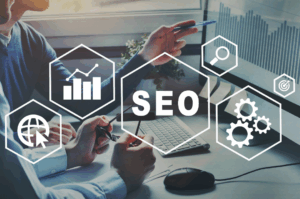
SEO in 2025: How Staffing Firms and B2B Marketers Can Win


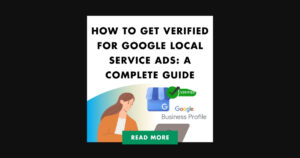
How to Get Verified for Google Local Service Ads: A Complete Guide

Revamping E-Commerce: AI Trends and Innovations in Design
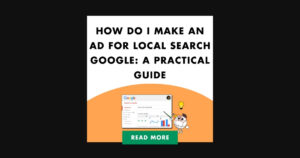
How Do I Make An Ad For Local Search Google: A Practical Guide
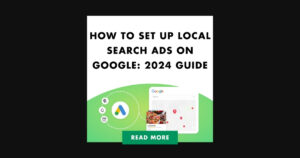
How To Set Up Local Search Ads On Google: 2024 Guide
What is an LSA ad? Boost Your Local Service Visibility

How Do Meta Ads Work? The Ultimate Guide To Facebook Ads in 2024

